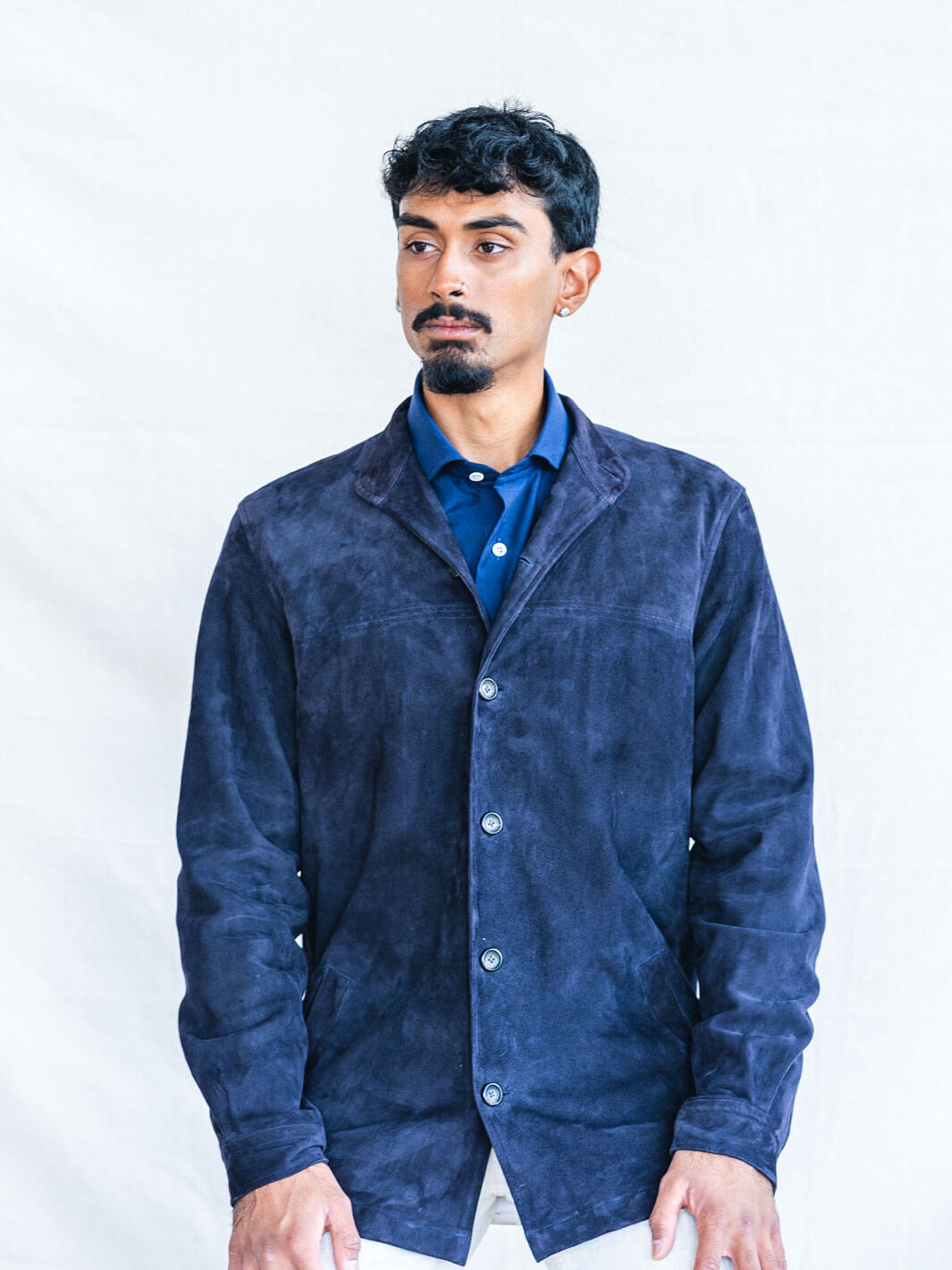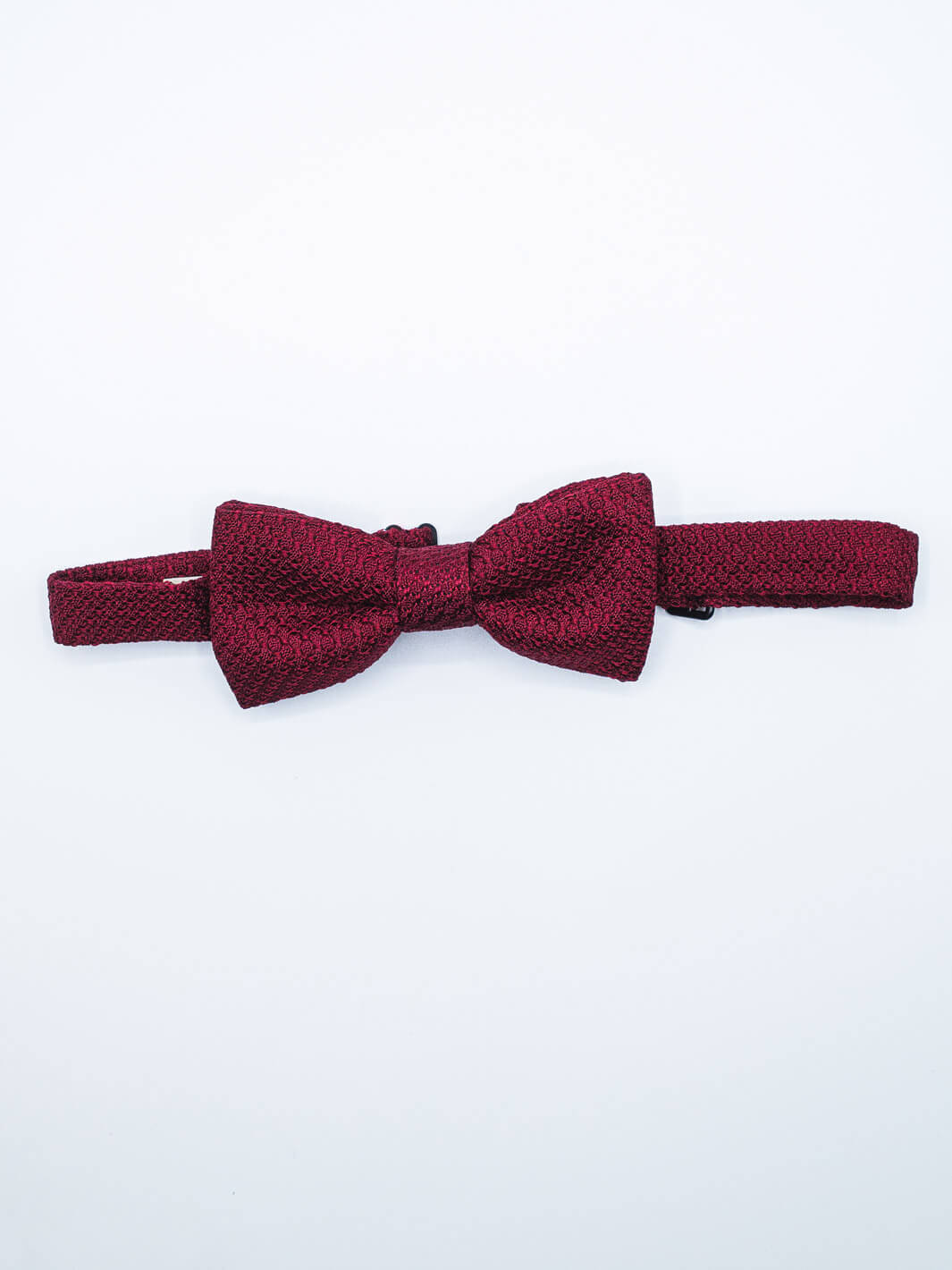“A contemporary take on time-honored tradition” – it might be one of the most overused cliches in the realm of high-end living. Swiss watchmakers, jewelry manufacturers, bespoke shoemakers: all trumpet the modernity-heritage dichotomy’s role in their approach, seemingly believing themselves to be the only protagonists in the luxury milieu doing so.
But when it comes to the textiles sourced by Officine Paladino, it’s anything but a vapid marketing platitude. The Singapore-based fabric merchant, founded in 2017, is absolutely adamant that its wares, sourced from Italian and English mills, must reside in the overlap between cutting-edge innovation and old-school methodology. They have to, in order to fulfill the brand’s raison d'être: which is, in the words of founder Vishal Advani, “to inspire and enhance the tailoring experience for the modern man”.
“We curate high-quality fabrics that weave refined style with versatility and material excellence,” he says. “Our fabric curation is inspired by how we live, work and play today, and how a tailored garment allows us to express ourselves freely. Our team works closely with the mills to optimize the spinning, weaving and finishing of exclusive fabrics for our collection, many of which are imbued with innovative qualities.” Indeed, Officine Paladino was one of the first fabric merchants in the world to introduce a crease-resistant wool fabric that is both stain and water repellent.

Officine Paladino is so devoted to this concept – deference to tradition, suffused with an emphasis on state-of-the-art technology – that its team even works proactively with the mills, ensuring that the spinning, weaving and finishing methods are all optimized to create the very best fabrics for their lookbooks.
In fact – and this is perhaps the crucial difference between Paladino and other mills and fabric merchants – rather than being simply providers of raw materials to the creative forces who weave the modern sartorial narrative, Advani and his colleagues see themselves as a major agent in how the style cognoscenti dress. “We truly believe in the adage, ‘Everything starts with the fabric’,” he says. “When it comes to bespoke tailoring, we work in tandem with our tailoring partners' style and craftsmanship to materialize the final garment for the discerning customer. Combined with the right construction from our partners, it allows for endless possibilities.”
As part of its drive to be a major protagonist, rather than play a supporting role, in the evolving story of how people dress, Officine Paladino has even launched its own digital Styling Tool, which enables users to check out how elegantly, say, a double breasted, notch lapel sports jacket in a Super 130s cloth with subtle windowpane check might juxtapose with a vest in a blue, subtly flecked wool, silk and linen blend and trousers in 250-gram cotton with a bold, rusty hue. Officine Paladino’s digital lookbooks and ‘Per-Suit’ blog and newsletter, meanwhile, are replete with razor-sharp, zeitgeist-y analysis and sartorial inspiration – and, crucially, advice as to indulge in it sustainably and ethically.

This last point is highly important to the brand. If contributing to how the world’s most august gents create elegant, classic ensembles is one core aim – one borne out in the imagery seen here – another is to fulfill what Officine Paladino sees as its sustainability obligations: whilst specific ethical practices by its suppliers are crucial when it comes to the company’s diligence in this arena – they will not source from mills which aren’t provenly committed to animal welfare, biodiversity and sustainability – Advani is enamored with the fact that his venture’s wares, by their very nature, militate against the environmentally destructive tenets of fast fashion. “The use of natural fibers helps minimize our environmental impact across our supply chain,” he says. “Plus, because quality and longevity are central to our fabrics, a garment made from our cloth will last decades.”
What Advani is describing here is a glorious congruence at the heart of timeless elegance: clothing which will never go out of fashion is invariably made from fabric which can endure the ravages of time. The fact that the most sophisticated approach to dressing is also the most conducive to the planet’s longevity adds a third dimension to this pleasing reality.









